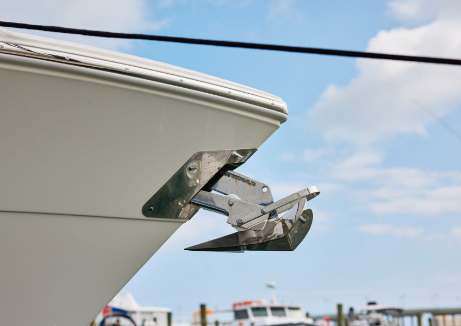Manners at sea are essential for ensuring safety, harmony, and respect between individuals navigating the ocean. Whether you’re a seasoned sailor or a novice enjoying a boat trip, understanding and adhering to maritime etiquette is crucial. With so much of the experience depending on mutual cooperation, manners play a pivotal role in creating an environment of trust and goodwill on the water.

Respecting Personal Space and Privacy
Maintaining Distance: A Key to Courtesy
One of the most important rules when at sea is to respect the personal space of other vessels. Just like in a parking lot on land, crowding other boats is a faux pas. Whether you’re anchoring in a marina or drifting alongside others in a harbor, always maintain a courteous distance. Not only is this a matter of privacy, but it also helps avoid accidents or misunderstandings.
Quiet Time: Respect for Your Neighbors
Noise travels farther over water, which makes it vital to be conscious of the volume on your boat. Loud music, shouting, or excessive engine noise can disturb those around you. Considerate behavior means keeping noise levels low, especially in shared spaces like marinas or coves, and being aware of how your actions affect others nearby.
Communication: Clear and Courteous Interaction
Using Proper Signals
Clear communication is key when you’re at sea. Using proper signals—whether through horn blasts, radio communication, or hand gestures—ensures that your intentions are understood. This not only prevents accidents but also demonstrates respect for the shared space and the safety of those around you.
VHF Radio Etiquette
When communicating via VHF radio, keep conversations short, clear, and professional. Avoid unnecessary chatter, as channels are often shared by many boaters and used for crucial communications. Always identify yourself and your location before transmitting to ensure clarity and prevent confusion.
Environmental Considerations: Respecting Nature at Sea
Keeping the Ocean Clean
Good manners at sea extend to how you treat the environment. Pollution is a major issue, and all sailors are responsible for keeping the oceans clean. Never throw trash overboard, and be mindful of potential pollutants like fuel spills or plastic waste. Sustainable practices, such as reducing plastic usage and proper disposal of waste, should be a priority.
Anchoring Considerations
When anchoring, be cautious about where and how you drop anchor. Avoid sensitive marine environments such as coral reefs or seagrass beds. Always be aware of regulations in protected areas, and use designated moorings when possible to prevent damage to delicate ecosystems.
Helping Fellow Boaters: A Tradition of Courtesy
Offering Assistance in Emergencies
One of the oldest traditions at sea is helping fellow sailors in need. If another boater is in distress, it’s customary to offer assistance, whether by offering fuel, providing a tow, or simply lending a hand. The camaraderie among sailors is built on the understanding that the sea can be unpredictable, and helping others in times of trouble is an essential part of maritime etiquette.
Sharing Knowledge with Novice Sailors
Experienced sailors can also demonstrate good manners by offering guidance and advice to newcomers. Sharing tips on navigation, safety, or boat maintenance fosters a spirit of community and ensures that everyone can enjoy their time on the water more safely and confidently.
Marina and Dock Etiquette: Rules for Shared Spaces
Slow Speeds and No Wake Zones
When entering marinas or dock areas, always adhere to the designated speed limits and no-wake zones. Excessive speeds can create dangerous waves that rock boats, damage docks, or even injure people. Showing consideration in these areas demonstrates respect for both the infrastructure and the safety of fellow boaters.
Tying Up Properly
Properly securing your boat is crucial to ensuring the safety of others in the marina. Double-check that your lines are tied securely, and avoid taking up more space than necessary. In crowded docking areas, it’s essential to be efficient and courteous with your boat’s positioning to avoid inconveniencing others.
Social Etiquette Onboard: Hosting and Guest Behavior
Being a Gracious Host
If you’re hosting guests on your boat, good manners include making them feel comfortable, explaining basic safety procedures, and offering refreshments. Ensure your guests understand important rules, such as not tossing objects overboard or respecting personal boundaries when moving around the boat.
Being a Respectful Guest
On the flip side, when you’re a guest on someone else’s boat, be mindful of their space and rules. Respect the captain’s instructions, be tidy, and offer to help when needed. Express gratitude for the experience, whether it’s a brief trip or a long cruise.
Conclusion: Manners as a Key to Harmony at Sea
Manners at sea are more than just a set of guidelines—they form the foundation for safe, respectful, and enjoyable experiences on the water. By showing consideration for others, respecting the environment, and maintaining clear communication, sailors of all experience levels contribute to a positive atmosphere that enhances everyone’s time on the water. Whether you’re navigating the open ocean or relaxing in a marina, good manners ensure smooth sailing for all.

